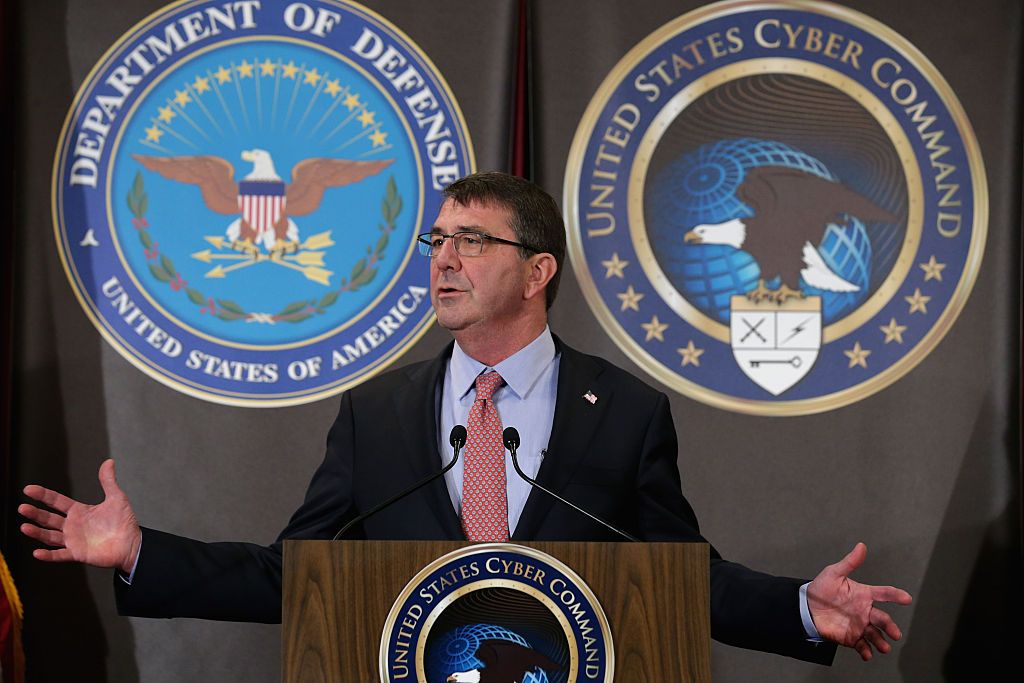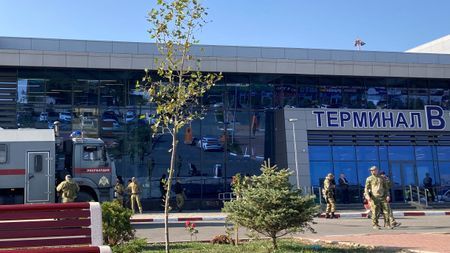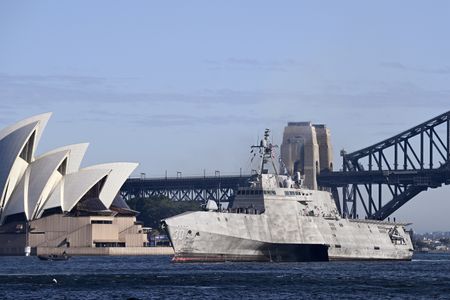The U.S. has turned its cyber-arsenal on ISIS


U.S. Cyber Command, the cyber-warfare cousin of the National Security Agency, has been attacking the Islamic State, disrupting their communications, recruitment, and day-to-day operations, The New York Times reported Sunday, citing interviews with "more than a half-dozen senior and midlevel officials," some of whom spoke on record. Cyber Command typically focuses on the nations that use the internet to attack the U.S. — Russia, China, Iran, North Korea — but President Obama has added ISIS to the list of targets.
Any discussion of cyber-warfare is "exceedingly rare," The New York Times notes, and officials were cleared to talk this time in part because ISIS is not a country so there is no legal issue about violating sovereignty. The tactical reason to discuss the cybercampaign is that "a bit of boasting might degrade the enemy's trust in its communications, jumbling and even deterring some actions," officials told The Times, and "rattle the Islamic State's commanders, who have begun to realize that sophisticated hacking efforts are manipulating their data."
The campaign has been carried out by Cyber Command "mission teams," the electronic equivalent of Special Operations forces, and involves learning the terrorist organization's online habits so the U.S. military hackers can alter messages to direct militants into traps or intercept and divert electronic payments. "We are dropping cyberbombs," Deputy Defense Secretary Robert Work told The Times this month. "We have never done that before." Obama is meeting with the leaders of Britain, France, Italy, and Germany in Hanover on Monday, and the war against ISIS is on the agenda. You can read more about the anti-ISIS cyber-war at The New York Times.
Subscribe to The Week
Escape your echo chamber. Get the facts behind the news, plus analysis from multiple perspectives.

Sign up for The Week's Free Newsletters
From our morning news briefing to a weekly Good News Newsletter, get the best of The Week delivered directly to your inbox.
From our morning news briefing to a weekly Good News Newsletter, get the best of The Week delivered directly to your inbox.
Sign up for Today's Best Articles in your inbox
A free daily email with the biggest news stories of the day – and the best features from TheWeek.com
Peter has worked as a news and culture writer and editor at The Week since the site's launch in 2008. He covers politics, world affairs, religion and cultural currents. His journalism career began as a copy editor at a financial newswire and has included editorial positions at The New York Times Magazine, Facts on File, and Oregon State University.
-
 Today's political cartoons - March 30, 2025
Today's political cartoons - March 30, 2025Cartoons Sunday's cartoons - strawberry fields forever, secret files, and more
By The Week US Published
-
 5 hilariously sparse cartoons about further DOGE cuts
5 hilariously sparse cartoons about further DOGE cutsCartoons Artists take on free audits, report cards, and more
By The Week US Published
-
 Following the Tea Horse Road in China
Following the Tea Horse Road in ChinaThe Week Recommends This network of roads and trails served as vital trading routes
By The Week UK Published
-
 British warship repels 'largest Houthi attack to date' in the Red Sea
British warship repels 'largest Houthi attack to date' in the Red SeaSpeed read Western allies warn of military response to Iranian-backed Yemeni rebels if attacks on ships continue
By Richard Windsor, The Week UK Published
-
 Houthi rebels claim Red Sea ship attacks
Houthi rebels claim Red Sea ship attacksspeed read Iran-backed Yemeni group vows to escalate aggression towards Israel-linked vessels in revenge for Gaza war
By Harriet Marsden, The Week UK Published
-
 Israel plans next phase of Gaza war as first hostages released
Israel plans next phase of Gaza war as first hostages releasedSpeed read After four-day ceasefire 'we will not stop' until destruction of Hamas, says Israel
By Harriet Marsden, The Week UK Published
-
 Mob storms Russian airport 'looking for Jews'
Mob storms Russian airport 'looking for Jews'Speed Read Plane from Israel surrounded by rioters chanting antisemitic slogans after landing in Russia's Dagestan region
By The Week UK Published
-
 Tuberville's military promotions block is upending lives, combat readiness, 3 military branch chiefs say
Tuberville's military promotions block is upending lives, combat readiness, 3 military branch chiefs saySpeed Read
By Peter Weber Published
-
 Ukraine's counteroffensive is making incremental gains. Does it matter in the broader war?
Ukraine's counteroffensive is making incremental gains. Does it matter in the broader war?Speed Read
By Peter Weber Published
-
 US commissions first-ever Navy ship in a foreign port
US commissions first-ever Navy ship in a foreign portSpeed Read
By Justin Klawans Published
-
 British spy chief, Wagner video suggest Prigozhin is alive and freely 'floating around'
British spy chief, Wagner video suggest Prigozhin is alive and freely 'floating around'Speed Read
By Peter Weber, The Week US Published
